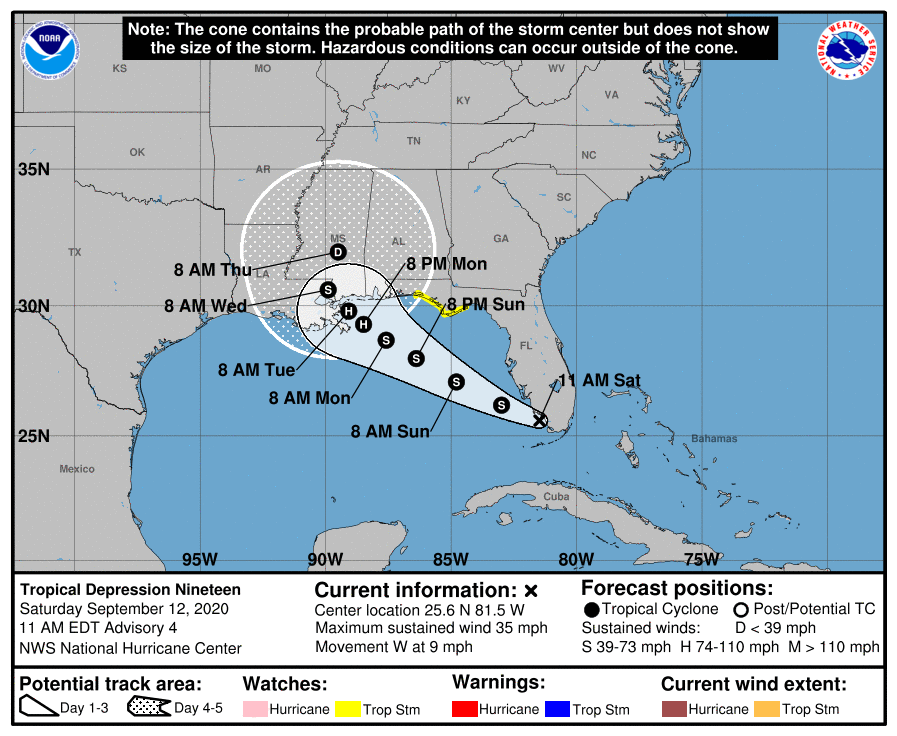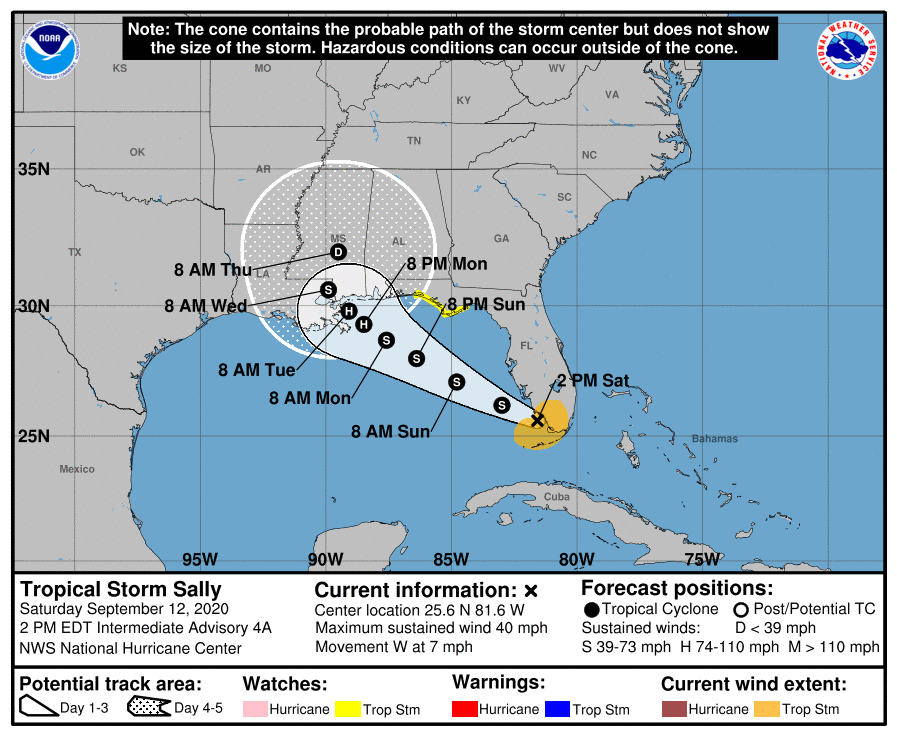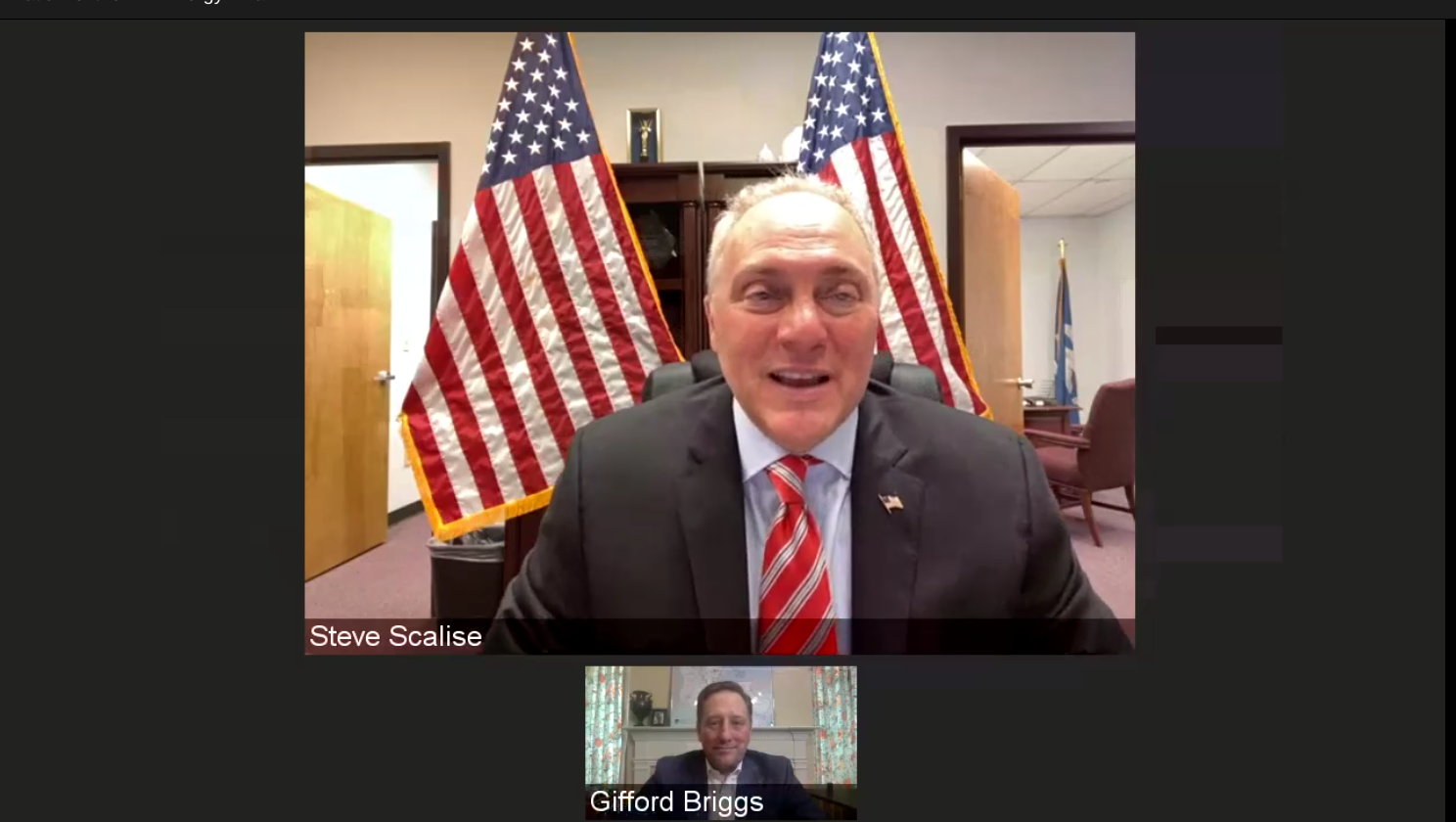
TD 19 is now forecast to become a category 1 storm before landfall
September 12, 2020
TD 19 becomes Tropical Storm Sally
September 12, 2020On Friday, local, state and federal officials discussed the current state of the oil and gas industry and what Louisiana can do moving forward to bring companies back.
U.S. Rep. Steve Scalise (R-La.), Louisiana State Senators Michael “Big Mike” Fesi and R. L. Bret Allain II, Lafourche Parish President Archie Chaisson and Terrebonne Parish President Gordon Dove all gave remarks during the “POWERING AHEAD: What’s Next for LA Energy” event hosted by the Grow Louisiana Coalition, an organization whose mission is to “raise awareness of and to rally support behind the state’s traditional economic industries, which are vital to Louisiana’s economic future and our way of life, to create a viable future for its citizens.”
A major topic of the virtual meeting was the parish lawsuits against oil and gas companies, which all speakers expressed they were against.
Seven Louisiana parishes have filed lawsuits against oil companies, accusing them of destroying coastal marshes and wetlands due to drilling and exploration.
Fesi sponsored Senate Bill 440 to end the lawsuits; however, it was defeated earlier this year.
“…My goal this coming year is to get all the coastal parishes on board to understand that you can promise gold at the end, but it’ll never show up. And I think that’s what these guys are chasing,” he said during the webinar. “We just need to work hard…and get everybody educated to understand that we see the oil companies helping us in every avenue there is. I just don’t understand why they would want to pursue our livelihood ‘cause I’ve always considered Louisiana the heartbeat of America.”
Fesi went on to say that he’s been hearing from oil and gas companies that they aren’t coming back to drill until the state gets rid of the lawsuits, and later added many area companies lost employees to Texas operations.
Allain said if these lawsuits are settled, all the money derived from them needs to go to the coast, which other speakers noted as well, and he is promoting legislation to do so.
“My bill simply says that all money needs to be directed to CPRA [Coastal Protection and Restoration Authority] for their direction or a project that is in line with the coastal master plan,” he said. “This idea of taking money and doing roads and bridges in Jefferson Parish or any place else is the carrot that the trial lawyers are hanging in front of local governments saying, ‘look, what I’m going to do for you.’”
The officials also touched on other ways to make Louisiana a more inviting place for oil companies, such as cutting back on taxes.
Dove called for ending ad valorem taxes on deepwater equipment, which some other coastal states do not have. “I believe to make it comfortable for the industry to stay here, we have to make it as comfortable as other people are offering in other states,” he said.
Chaisson noted that his administration has been looking at taxes as well, finding ways to lower taxes for companies by readjusting the budget.
“We made it very clear that we were going to be on the forefront of economic development in Lafourche,” he said, before noting that the Lafourche Government is also working on promoting businesses to come to the parish.
Scalise, who was the keynote speaker, opened with positives in the oil and gas industry, saying that the industry just prior to the COVID-19 was in a good place.
“We are going to get back there; we are going to get our economy back going,” he said on the day Louisiana moved into Phase 3 of reopening. “We had the most dominant energy economy in the world. And a lot of that success in energy dominance was because of what’s done in Louisiana: the incredible work and the innovation.”
In addition to the other officials who spoke, Scalise talked about the importance of the oil and gas industry for the economy, and the need for coastal protection and restoration, which he added energy companies have contributed to.
“…The benefits, by the way, from producing energy can be felt throughout the country,” he said. “But for us, what it means is when we’re producing energy in Louisiana, in the Gulf of Mexico, that it is producing billions of dollars of revenue for the federal treasury. But it’s also producing tens, if not, hundreds of millions of dollars for Louisiana to restore our coast. This is a vital lifeline.”
The congressman also noted that over-regulation in the United States isn’t good for the economy as it could force businesses to produce in foreign countries, which would not be good for the environment, too, as they don’t have the same standards in regard to carbon emissions as America.
There have been myths circulating about the safety standards in the energy industry, Scalise said, and he brings fellow Congress members to oil rigs in the Gulf every year to show them how clean the water nearby is. When they look down and see the “Caribbean blue water” and game fish swimming around, “it blows them away” he said.
“They’re like, ‘oh wow, I didn’t know how clean it was and the safety standards that are in place,’” Scalise continued. “I think that’s another side of the story we need to tell more because we love and care for our environment.”
Speakers also asked for the community to get involved, letting their voices be heard on policies that affect the oil and gas industry.
“Too many times, I think people believe that they don’t have a voice and they don’t have an opportunity to participate,” said Gifford Briggs, who moderated the webinar on his last day as President of the Louisiana Oil and Gas Association (LOGA). “Every year, we have ‘Industry Day’ at the Capitol, and if we could get a small fraction of those that work in the industry, that are impacted by the industry, that care and love this industry to show up at the Capitol — there’s no telling what we could accomplish.”
He continued: “So hopefully people that are listening will heed this call and understand that their voice does matter, and will take those extra steps to get engaged in the process.”










